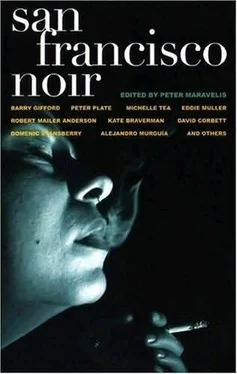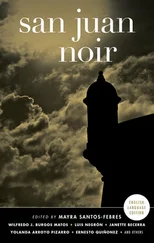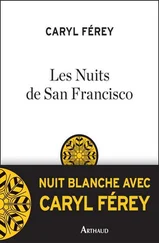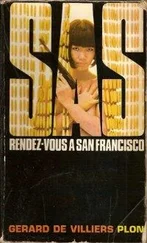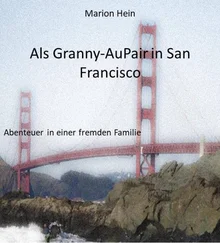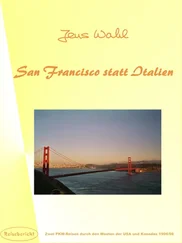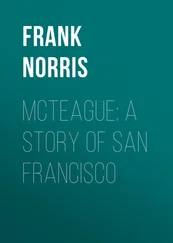When he thought of why he had been selected to go, though, the picture grew darker. It was clear he was going, on the one hand, to take care of the money and keep it from capitalists and opportunists, in case Ariel, who was old as shit, had a heart attack or otherwise dropped dead. On the other, and this was the part of his job he was uncomfortable with, he was probably there to keep an eye on his companion. Or rather, they were to keep an eye on each other, in case either person, and the people who backed them, tried to muscle out the other. This was not something he liked to think about. Ariel had built factions within the organization, probably based in the Midwest. Things were lining up, Michael understood though only very vaguely, along the same faults that were fracturing the CPC. Everyone knew Ariel was a Chou En-lai guy, but which way did Chou go? With Liu Hsiao-chi? Lin Piao and the PLA? Or the radicals? Michael had been selected, he believed, because he was trusted on all sides. That had always been his best trait: he got along with everybody. And he could also take care of himself, if he had to. Certainly he could against an old man. But he did not want to think he couldn’t trust Ariel, or the organization. He was sure of his own commitment. He believed the group was sure too and would take the necessary precautions for his safety. One good sign was his receiving only the information he needed to know, which, he understood, was for his own protection.
On returning to the Bay Area, he ran into Francis. Michael was on his way to the People’s Bookstore on Brenham Street, off Portsmouth Square. Francis was coming out with some books tucked under his arm. On that gray day, he looked uncharacteristically like an ineffably old Chinese scholar, strolling through Tien An Men on his way to the Forbidden City.
The two of them talked among the pigeons. The square was unusually empty. Droplets of mist condensed in the air. Playing their game of one-upmanship, Michael mentioned the job he was being assigned and that he was traveling with Ariel. His disclosure was strategic as well. He wanted to gauge how much Francis knew.
“Well, you know the score,” Francis replied, unperturbed. “Don’t let Ariel out of your sight once the two of you pick up the money.”
Michael nodded. He couldn’t tell if Francis was playing the same game, talking as if he knew more than he did. All of them did that to some degree, Michael supposed. But maybe Francis did know things about Ariel that Michael didn’t.
Without having mentioned that China was the place he was being sent, he asked Francis where he might buy a decent Chinese phrasebook and maps. “I came here for that, but I was thinking there are other places in Chinatown I could look.”
“There are places you could buy maps,” Francis replied, without missing a beat, “but because most of them are printed in Hong Kong or Taiwan, they’re inaccurate.” They depicted nonexistent rail lines and provincial boundaries, he explained, and some still drew the national borders as if it were the height of the Ching Dynasty. “The capital is Nanking, while Peking doesn’t exist at all. It’s called ‘Peiping,’ the Pacified North . You’re better off sticking to our own bookstore.”
“All right then.”
Michael went ahead and bought all the maps he could find anyway. When he went home and compared them all, including the one in the World Atlas in his local library, he wasn’t surprised to find the discrepancies Francis had mentioned. He was no stranger to political fictions. In practice, he lived to fight against them, but he had to admit, he was dismayed to encounter such a black-and-white instance of contested reality. On the one hand, there was the version promulgated by the United States, which pretended a government representing one billion people practically did not exist. On the other, there were remote areas in the southwest of China the size of California that he knew could not be considered under Communist control, no matter how cleanly delineated. The maps, far from providing a composite picture of something resembling the truth, only made the place he assumed he was traveling to seem all the more unreal.
When they arrived in Seattle, having driven up, just the two of them, they stored Michael’s car at the local organization headquarters. He and Ariel moved into the backseat of another car. Two local cadre sat up front to drive them past the border.
In Vancouver, they made a brief stop. Michael stayed in the car. Ariel entered an apartment building. A few minutes later, he reemerged with two passports with their photographs and new identities. Michael felt a chill. He hadn’t handed a photograph of himself to anybody, and this particular photo he’d had taken in a photo booth at Ocean Beach, with the only prints he knew somewhere in his desk at home. Ariel told him, none too reassuringly, everything was being taken care of “on the other end.” He also had another item with him: a suitcase full of something, clothes presumably.
“You’re going to check this piece of luggage in under your own name,” one of the Seattle operatives told Michael. “You’ll get a ticket for it, but you won’t need to replace the contents with anything. In fact, once you check it in, you won’t see it again until you get back to Canada.”
On the long flight across the Pacific Ocean, the two of them didn’t speak much, sleeping most of the way, but for the few hours both of them were awake, Ariel turned surprisingly chatty. He broke into his life’s story, how he once ran off to join a puppet troupe, decided to become a Communist before he turned forty, even going a bit into China. Michael appreciated how friendly he’d become, after the long, tense drive from San Francisco, but grew unsettled the more it went on. Somehow, every time Michael tried to steer the topic of conversation toward actual information, such as going into greater detail over the handoff protocol, Ariel batted it away. It was very subtle, Michael couldn’t say at what precise moment he’d been deflected, but it happened repeatedly. Despite the fact that Ariel’s stories sounded too nutty to be made up, Michael eventually realized that what seemed like casual candor was boldly executed diversion. The more Ariel talked, the less Michael knew.
Ariel was in a grand mood, though, and, once he got going, went into his theory on why Vietnam was just a prelude to a global war between the U.S. and China.
“Either the two superpowers are going to enter into an alliance against China or, more likely, the U.S. is going to simply beat the Soviets into reneging on their commitments to international socialist solidarity, to the point, if you ask me, where we’ll see the collapse of the U.S.S.R. as a political entity. At that point, we enter a new phase of the Cold War, where the balance of power isn’t between the U.S. and Soviets, but between the U.S. and China. This will all happen within the next twenty years, by the way. Moreover, everyone knows this already, which is why the real target of U.S. strategy right now the world over isn’t the U.S.S.R., but China. By the time the crucial battleground will have shifted to the Pacific Rim, the Eastern Bloc will be just a memory.”
Michael couldn’t help feeling excited. Or maybe it was just the straight drive, without stopping, and to finally have got up in the air. Either way, he thought there was a grain of respectability to the scenario Ariel had just painted. The collapse of the U.S.S.R. in twenty years? China as the world’s second superpower? A shift in the global balance of power to the Pacific nations? It seemed unbelievable, and yet here they were, suspended in the stratosphere, somewhere between San Francisco and Tokyo, on a mission to change the world.
Japan was no different than, say, La Guardia, but once they boarded a Russian passenger jet bound for Shanghai, Michael felt he had entered another world. The cabin looked like the interior of a kids’ clubhouse. There was no crew to speak of. Or passengers, for that matter. Just a few black-haired heads scattered about the narrow cabin, none of them in a seat next to another. He and Ariel sat in the first row, with their interpreter/guide/watchdog, a thin woman in a blue pantsuit with a bob haircut.
Читать дальше
